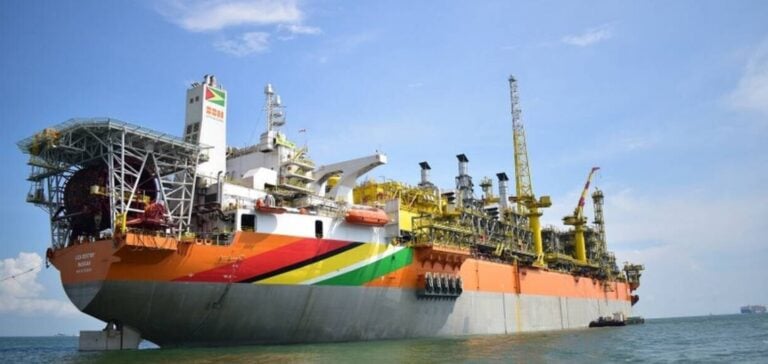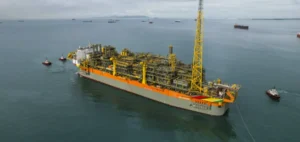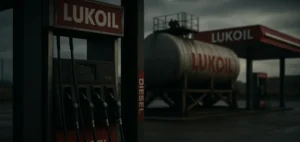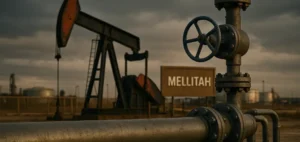ExxonMobil Corporation, in partnership with Hess Corporation and CNOOC Limited, has announced plans to drill up to 30 new wells at its Hammerhead project in Guyana. The project, which is awaiting government approval, is scheduled to start production in 2029, increasing the country’s oil production capacity to over 1.4 million barrels per day.
With an estimated daily production capacity of between 120,000 and 180,000 barrels, Hammerhead will produce less than the 250,000 barrels per day of its largest current platforms. The project includes a floating production, storage and offloading (FPSO) unit, which will be a Very Large Crude Carrier (VLCC) conversion.
A significant increase in production capacity
The Hammerhead FPSO will be located 15 km southwest of Liza Destiny,ExxonMobil ‘s first platform in Guyana. The storage capacity of this new unit is estimated at between 1.4 and 2 million barrels of oil. This project is part of ExxonMobil’s strategy to strengthen its presence in the region and maximize the exploitation of Guyana’s oil resources.
The development of the Hammerhead oilfield will make a significant contribution to the local economy, while increasing the country’s oil exports. Guyana, which has become a key player in the global oil market, will see its revenues and investments increase thanks to this project.
Economic implications and future prospects
The economic implications of this project are considerable. Increased production capacity could attract more foreign investment and create new job opportunities for the local population. In addition, the partnerships with Hess Corporation and CNOOC Limited will strengthen economic and strategic relations between the countries involved.
This project is also part of a broader perspective of sustainable development and responsible management of natural resources. ExxonMobil underlined its commitment to respecting environmental standards and minimizing the ecological impact of its operations.
The future of Guyana’s oil industry looks bright with projects like Hammerhead. The development of these new wells could position Guyana as a regional leader in oil production, strengthening its economic and political influence.
This major project shows that Guyana is well on the way to becoming a hub for the South American oil industry, with significant economic and social benefits for the region.






















